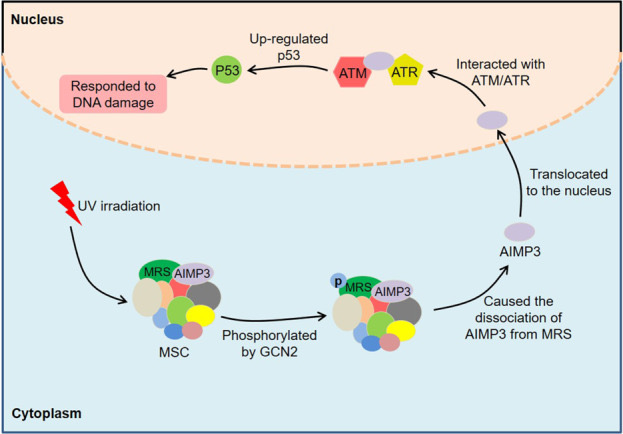New Insights into AIMP3 Protein's Role in Heart Disease Treatment

Recent research led by a team from Brown University has unveiled critical findings regarding the protein AIMP3 and its significant role in heart disease pathology. The study, published in the *Nature Cardiovascular Research* journal, discovered that the absence of AIMP3 in heart cells of a mouse model resulted in severe cardiac complications, including inflammation, tissue scarring, and even fatal heart failure.
According to Dr. Federica Accornero, an associate professor of biochemistry at Brown University and the senior author of the study, "AIMP3 is a protein that had never been studied in the heart and was of unclear function. What we discovered is that cardiac AIMP3 is crucial for survival." The findings are groundbreaking, as they highlight a previously unrecognized role of AIMP3 in heart health, indicating that this protein is essential for the normal functioning of cardiac cells.
Historically, AIMP3 has been associated with protein synthesis, primarily by anchoring methionyl tRNA synthetase (MetRS) within the multisynthetase complex (MSC). However, the Brown study reveals that AIMP3’s function in the heart differs significantly from its previously understood roles. The researchers found that without AIMP3, MetRS could not efficiently remove homocysteine (Hcy), a metabolite that can be toxic in excess. The accumulation of Hcy subsequently triggered oxidative stress, protein misfolding, and mitochondrial dysfunction in cardiomyocytes.
Dr. Anindhya S. Das, a postdoctoral researcher in the Accornero lab and co-first author of the study, explained, "We showed that AIMP3 deficiency leads to protein aggregate formation, including defects in bona fide aggregation markers in the heart." They noted that these aggregates were not eliminated by the proteasome system, leading to dysregulated autophagy, indicating a toxic imbalance in cardiac tissue.
The mitochondrial dysfunction observed in AIMP3-deficient hearts was linked to oxidative stress, which altered mitochondrial respiration and oxygen consumption. This dysfunction resulted in cardiomyocyte necrosis and fibrotic remodeling, ultimately leading to heart failure in the studied mouse model.
While the findings are currently based on animal studies, they raise critical questions about AIMP3’s role in human heart disease. The research team is set to explore further whether increasing AIMP3 levels could enhance the heart's ability to cope with stress, potentially paving the way for new therapeutic approaches to heart disease. Dr. Das stated, "We are conducting studies in mice to determine how we might use the new discovery to develop preventative treatments for heart disease."
Given the increasing prevalence of heart disease globally, which according to the World Health Organization (WHO) is the leading cause of death, these findings may have significant implications. In 2023, heart disease accounted for approximately 18 million deaths worldwide, highlighting the urgent need for innovative treatments. The research opens avenues for targeted therapies that address the underlying mechanisms of heart failure by focusing on the modulation of AIMP3 levels.
As the scientific community continues to investigate the intricate relationship between metabolic stress and protein synthesis fidelity in cardiac health, further studies will also expand to examine the functions of related proteins AIMP1 and AIMP2, potentially revealing more about their contributions to cardiovascular health. The ongoing research underscores the importance of understanding protein roles in heart disease to develop effective therapeutic strategies that could ultimately save lives and improve the quality of care for patients suffering from heart conditions.
Advertisement
Tags
Advertisement





